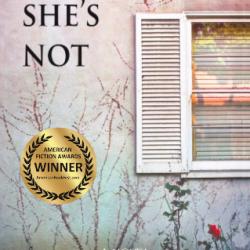 Lately I’ve been getting the vibe that a lot of people out there are feeling newly inspired about their writing. Maybe it’s just spring coming on. I dunno. But I do know that the subject of writing and writers is near to my heart (not to mention my everyday work life). So, for what it’s worth, this is for anyone out there lately feeling moved by the writing muse to do your/her/its thing.
Lately I’ve been getting the vibe that a lot of people out there are feeling newly inspired about their writing. Maybe it’s just spring coming on. I dunno. But I do know that the subject of writing and writers is near to my heart (not to mention my everyday work life). So, for what it’s worth, this is for anyone out there lately feeling moved by the writing muse to do your/her/its thing.
1. Be insanely brave. Real writing is no place for people-pleasers and/or congenital followers. Either have the nervy verve to get out ahead of the pack, or lie down so at least the pack doesn’t trip rampaging over you. Say what you know other people are thinking—sometimes before they even know they’re thinking it. Believe that you have to offer a new perspective, a new modality of perception, a whole new paradigm. Don’t be afraid. Think boldly. Write passionately. Keep coming at ’em.
2. Think of yourself as an artist. Dive so far down inside your soul you reach that crazy dark place where all the rules are broken and real art is born. Stay in that place. Draw your ink from that well. Don’t think of yourself as a writer. Think of yourself as an artist whose principal medium is words.
3. Care about you only. If you write in hopes that others will like what you write (or, heaven forfend, like you for writing it), get yourself another hobby. Writing’s not your game. Write what you write for you, period. If others like it, yay. If not, love them, wave good-bye to them, and get back to your work. Write to find out who you are, what you think, what you feel. Trust that if you’re terribly honest about articulating your personal, richest truths, then what you say will resonate with others, because at that point you’ll be ringing the common bell.
4. Know your mechanics. Passion, art, courting inspiration, riding the tornado of the moment: all perfect and indispensable to the process. But in the end a writer who doesn’t know the grunt mechanics of punctuation, grammar, and syntax is like the professional sniper who’s never fired a gun: something’s gone hinky somewhere. If, for instance, you’re not perfectly sure of how and when to use a semicolon, then don’t write another word until you are. (See my When Punctuation Goes Really, Really Wrong.) That stuff’s not that hard to learn. Don’t undermine your art by failing to master your craft.
For more on this subject, see my How To Make a Living Writing.












